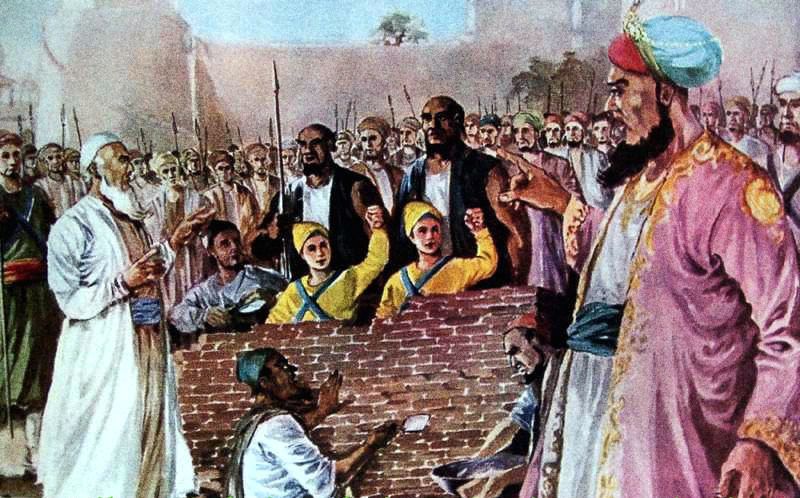
Fateh Singh (25 February 1699 – 28 December 1704 or 12 December 1704), commonly referred to with honorifics as Baba Fateh Singh or Sahibzada Baba Fateh Singh, was the fourth and youngest son of Guru Gobind Singh. He was born at the spot marked by the modern-day Gurdwara Bhora Sahib, Anandpur and was reared in the same locality. He was raised by his paternal grandmother, Mata Gujri, after the passing of his mother, Mata Jito, in December 1700.According to one theory regarding the genesis of the Akali Nihang tradition, they stem from Fateh Singh, with their characteristic blue garbs and turbans tracing their origin to the uniform of Fateh Singh and being prescribed by Guru Gobind Singh for his warriors.
Sahibzada Zorawar Singh(17 November 1696 – 5 or 6 December 1704), alternatively spelt as Baba Jorawar Singh, was a son of Guru Gobind Singh who was executed in the court of Wazir Khan, the Mughal Governor of Sirhind.In 1699, the Hindu Rajahs of the Shiwalik Hills, frustrated with increasing Sikh ascendancy in the region, requested aid from Aurangzeb; their combined forces took on the Khalsa, led by Guru Gobind Singh, at Anandapur but was defeated. Another faceoff followed in the neighboring Nirmoh but ended in Sikh victory; there was probably another conflict in Anandapur (c. 1702) to the same outcome. In 1704, the Rajahs mounted a renewed offensive against Singh in Anandapur but facing imminent defeat, requested aid from Aurangzeb. While the Mughal subahdars came to aid, they failed to change the course of the battle. Accordingly, the Rajahs decided to lay siege to the town than engage in open warfare.
One such is the martyrdom of the two younger sons of the tenth master of the Sikhs, Guru Gobind Singh Ji! The young and innocent boys, Sahibzada (Prince) Zorawar Singh and Sahibzada Fateh Singh attained martyrdom on 26, December, 1705, when they were brutally murdered by Wazir Khan the Mughal Governor of Sirhind.